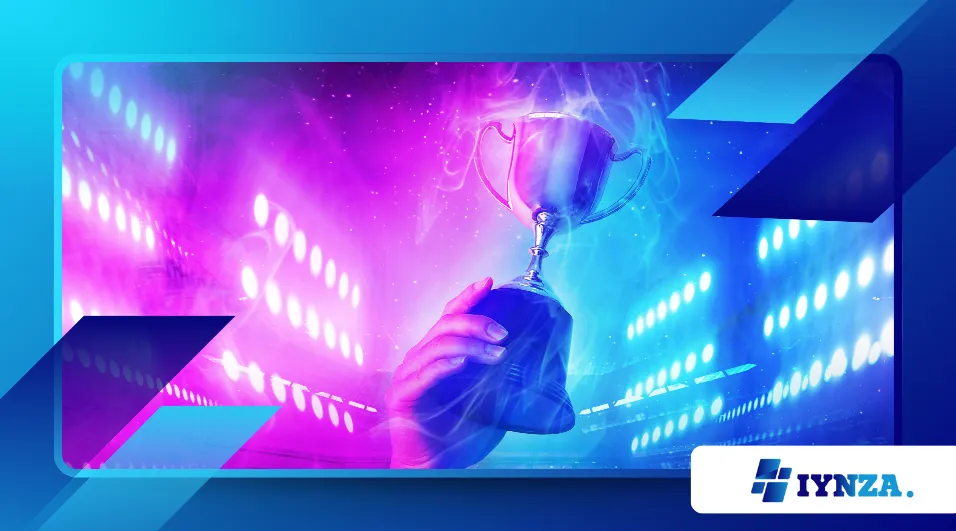How Esports is Helping to Bridge Cultural Gaps

In a world often divided by language, geography, and tradition, esports has emerged as a powerful force to bridge cultural gaps.
Anúncios
Competitive gaming transcends borders, creating a universal language that unites players and fans from diverse backgrounds.
With over 2.7 billion gamers globally, according to Newzoo’s 2023 report, esports is not just a form of entertainment—it’s a cultural phenomenon fostering connection, understanding, and collaboration.
As esports continues to grow, it is also becoming a significant part of youth culture, influencing fashion, music, and social interactions.
This cultural integration highlights the potential of esports to not only entertain but also shape societal norms and values across different regions.
The Universal Language of Gaming
Unlike traditional sports, which are often tied to specific regions or cultures, esports thrives on inclusivity.
Games like League of Legends, Dota 2, and Fortnite have massive global followings, with players and fans hailing from every corner of the planet.
These games don’t just entertain; they create shared experiences that bridge cultural gaps by focusing on common goals: strategy, teamwork, and competition.
For instance, the annual League of Legends World Championship brings together teams from North America, Europe, Asia, and beyond.
Fans cheer not just for their home teams but for the skill and creativity displayed by players worldwide.
This shared enthusiasm fosters mutual respect and breaks down stereotypes, proving that esports can be a catalyst for cultural exchange.
Moreover, the accessibility of online gaming platforms allows players from different backgrounds to connect without the limitations of physical distance.
This connectivity encourages friendships and alliances that transcend geographical boundaries, reinforcing the idea that gaming can unite rather than divide.
Breaking Down Barriers Through Collaboration
Esports doesn’t just connect people through fandom; it also encourages collaboration.
Professional teams often feature players from multiple countries, creating multicultural environments where individuals learn to navigate cultural differences.
Take Team Liquid, a top-tier esports organization with players from South Korea, Europe, and North America.
Their success hinges not just on individual talent but on their ability to communicate and collaborate across cultural divides.
This dynamic extends beyond players to coaches, analysts, and even fans.
Online forums, streaming platforms like Twitch, and social media channels provide spaces where people from different cultures can share strategies, discuss gameplay, and celebrate victories together.
These interactions naturally bridge cultural gaps, fostering a sense of global community.
Additionally, collaborative events like international tournaments encourage fans to come together, share experiences, and learn from one another.
These moments of unity further solidify the role of esports as a tool for cultural exchange and understanding.
+ How to Improve Your Reaction Time for Competitive Gaming
Esports as a Platform for Cultural Representation
One of the most compelling ways esports helps bridge cultural gaps is through representation.
Games often incorporate diverse characters, storylines, and settings that reflect a variety of cultures.
For example, Overwatch features heroes from Japan, Brazil, Sweden, and more, each with unique backstories that celebrate their heritage.
This representation matters.
It allows players to see themselves in the games they love and introduces others to cultures they might not otherwise encounter.
By celebrating diversity, esports not only entertains but also educates, fostering empathy and understanding among its global audience.
Furthermore, events like cultural festivals within games create opportunities for players to engage with different traditions and customs.
These experiences enrich the gaming landscape and promote a sense of belonging among players from various backgrounds.

The Role of Esports in Education and Diplomacy
Esports is also making waves in education and diplomacy, further solidifying its role as a tool to bridge cultural gaps.
Universities worldwide are establishing esports programs, offering scholarships, and hosting international tournaments.
These initiatives provide students with opportunities to interact with peers from different cultures, building friendships and professional networks that span the globe.
On a larger scale, governments and organizations are recognizing esports as a form of “digital diplomacy.”
South Korea, for instance, has used its esports prowess to strengthen ties with other nations, hosting international tournaments and collaborating on gaming initiatives.
These efforts highlight how esports can serve as a bridge, fostering goodwill and cooperation between countries.
Moreover, educational institutions are increasingly incorporating esports into their curricula, teaching skills such as teamwork, communication, and strategic thinking.
This educational approach not only prepares students for careers in the gaming industry but also promotes cultural awareness and sensitivity.
For more insights on how esports is shaping cultural connections, visit ESPN Esports.
The Economic Impact of a Connected Gaming World
The global esports economy is another testament to its ability to bridge cultural gaps.
With revenues projected to surpass $1.8 billion in 2023, the industry creates opportunities for collaboration across borders.
Sponsors, advertisers, and investors from different regions come together to support tournaments, teams, and content creators, driving economic growth while promoting cultural exchange.
For example, Chinese tech giant Tencent owns Riot Games, the developer of League of Legends, while American companies like Amazon (through Twitch) and Microsoft (via Xbox) play significant roles in the ecosystem.
This interconnectedness not only fuels innovation but also encourages cross-cultural partnerships that benefit the entire industry.
Additionally, the growth of the esports market has led to job creation in various sectors, including marketing, event management, and content creation.
These opportunities provide individuals from diverse backgrounds the chance to collaborate and contribute to a thriving global economy.
Challenges and Opportunities
While esports has made significant strides in bridging cultural divides, challenges remain.
Language barriers, time zone differences, and regional disparities in access to technology can hinder inclusivity.
However, these challenges also present opportunities for growth.
Organizations like the International Esports Federation (IESF) are working to address these issues, promoting fair play, accessibility, and cultural understanding.
By tackling these obstacles head-on, the esports community can continue to evolve as a truly global phenomenon.
Furthermore, initiatives focused on language education and technological access can empower underrepresented communities to participate in the esports ecosystem.
As more players gain access to gaming resources, the potential for cultural exchange and collaboration increases significantly.
++ Top 10 Esports Tournaments to Watch in 2025: From LoL to Valorant

The Future of Esports and Cultural Connection
As technology advances, the potential for esports to bridge cultural gaps will only grow.
Virtual reality (VR) and augmented reality (AR) could create even more immersive gaming experiences, allowing players to interact in ways that feel almost tangible.
Meanwhile, advancements in AI and machine learning could help overcome language barriers, enabling real-time translation during gameplay and streaming.
The rise of mobile gaming is another game-changer, particularly in regions where access to traditional gaming consoles is limited.
Mobile games like PUBG Mobile and Free Fire have already brought millions of players into the esports fold, further diversifying the community and strengthening its global reach.
As mobile technology continues to improve, the accessibility of esports will expand, allowing even more players to connect and collaborate across cultures.
This evolution will further solidify esports’ role as a unifying force in the global gaming landscape.
Tables: Esports and Cultural Impact
Table 1: Global Esports Audience Growth (2019-2023)
| Year | Esports Enthusiasts (Millions) | Occasional Viewers (Millions) | Total Audience (Millions) |
|---|---|---|---|
| 2019 | 200 | 250 | 450 |
| 2020 | 220 | 280 | 500 |
| 2021 | 240 | 300 | 540 |
| 2022 | 260 | 320 | 580 |
| 2023 | 290 | 350 | 640 |
Table 2: Top Esports Titles by Cultural Representation
| Game Title | Number of Represented Cultures | Notable Cultural Elements |
|---|---|---|
| Overwatch | 20+ | Heroes from Japan, Brazil, Sweden, etc. |
| League of Legends | 15+ | Champions inspired by global mythologies |
| Dota 2 | 10+ | Characters based on diverse folklore |
| Fortnite | 5+ | Skins and events celebrating global cultures |
Conclusion
Esports is more than just a pastime; it’s a global movement with the power to bridge cultural gaps.
Through shared experiences, collaboration, and representation, competitive gaming fosters understanding and connection in ways few other industries can.
As the esports community continues to grow, its potential to unite people across cultural divides will only strengthen, proving that in the world of gaming, we’re all on the same team.
By embracing diversity and leveraging technology, esports is not just shaping the future of entertainment—it’s building a more connected world.
Whether you’re a player, a fan, or simply an observer, there’s no denying the profound impact esports has on our global culture.
And as we look ahead, one thing is clear: the game is just beginning.
